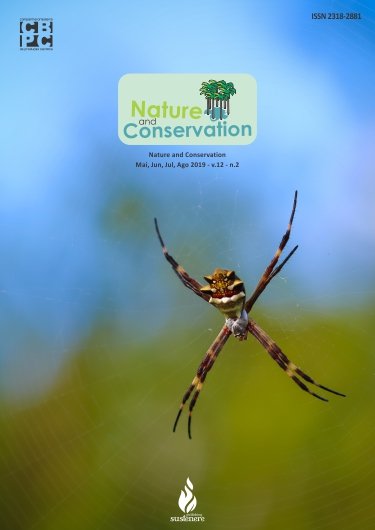Environmental education applied to solid waste in a rural community in the state of Minas Gerais, Brazil
DOI:
https://doi.org/10.6008/CBPC2318-2881.2019.002.0009Keywords:
Solid waste, Environmental education, Composting, RecyclingAbstract
ABSTRACT
In rural areas, large amounts of waste are produced, and although they have great potential, they are disposed of inappropriately, generating negative impacts on the environment and public health. In this context, environmental education emerges as an important instrument in the management of solid waste, enabling the development of knowledge, activities and skills necessary for environmental preservation. The present study was developed in the rural community Antônio Olinto, located in the northern state of Minas Gerais, Brazil. Considering that much of the waste produced in the community is inappropriately disposed of, it is necessary to develop actions that promote the awareness of the residents of the community. In this way, the present study aimed to develop actions that promote the awareness of the local population regarding the risks of the irregular disposition of solid waste generated, as well as to propose alternatives for the management of this solid waste. Thus, visits were made to the rural community and residents' homes, in order to identify the main impacts of anthropic activities and the problems faced by the local community, resulting from these impacts. In addition, in order to promote the reuse of organic waste, a composting workshop was held with the participation of residents. From these activities with considerable participation of the residents, it was evidenced that the rural community suffers from the effects of the inadequate destination of solid waste. In this way, the visits to the residences as well as the composting workshop made it possible to raise awareness among residents in order to adopt a model for the management of solid waste generated, aimed at reducing, reusing and recycling solid wastes, as well as the composting for the use of organic waste, aiming at maximizing the potential of waste generated in the community.
Keywords: solid waste; environmental education; composting; recycling.In rural areas, large quantities of waste are produced which, despite having great potential, are improperly disposed of, causing negative impacts on the environment and public health. In this context, environmental education emerges as an important instrument regarding solid waste management, enabling the development of knowledge, activities and skills necessary for environmental preservation. The present study was developed in the rural community Antônio Olinto, located in the north of Minas Gerais state, Brazil. Considering that much of the waste produced in the community is improperly disposed of, it is necessary to develop actions that promote the awareness of community residents. Thus, the present study aimed to develop actions that promote awareness of the local population, regarding the risks of irregular disposal of solid waste generated, as well as propose alternatives for the management of this solid waste. To this end, visits were made to the area of the rural community and residents' homes to identify the main impacts from anthropic activities and the main problems faced by the local community resulting from these impacts. In addition, to promote the reuse of organic waste, a composting workshop was developed with the participation of several residents. From these activities with considerable participation of residents, it was shown that the rural community suffers from the effects of improper disposal of solid waste. In this way, the visits to the residences, as well as the composting workshop, made the residents aware so as to adhere to a model for the management of solid waste generated, which aims at the reduction, reuse and recycling of solid waste, as well as the composting technique for the use of organic waste, aiming to maximize the potential of the waste generated in the community.
Downloads
Downloads
Published
Issue
Section
License
The CBPC - Companhia Brasileira de Produção Científica (Brazil CNPJ: 11.221.422/0001-03) the material rights of the published works. The rights relate to the publication of the work anywhere in the world, including rights to renewals, expansions and dissemination of the contribution, as well as other subsidiary rights. All electronically published works may subsequently be published in printed collections under the coordination of this company and / or its partners. The authors preserve the copyright, but are not allowed to publish the contribution in another medium, printed or digital, in Portuguese or in translation.









